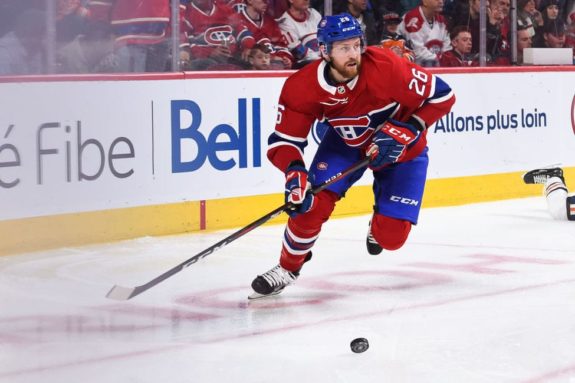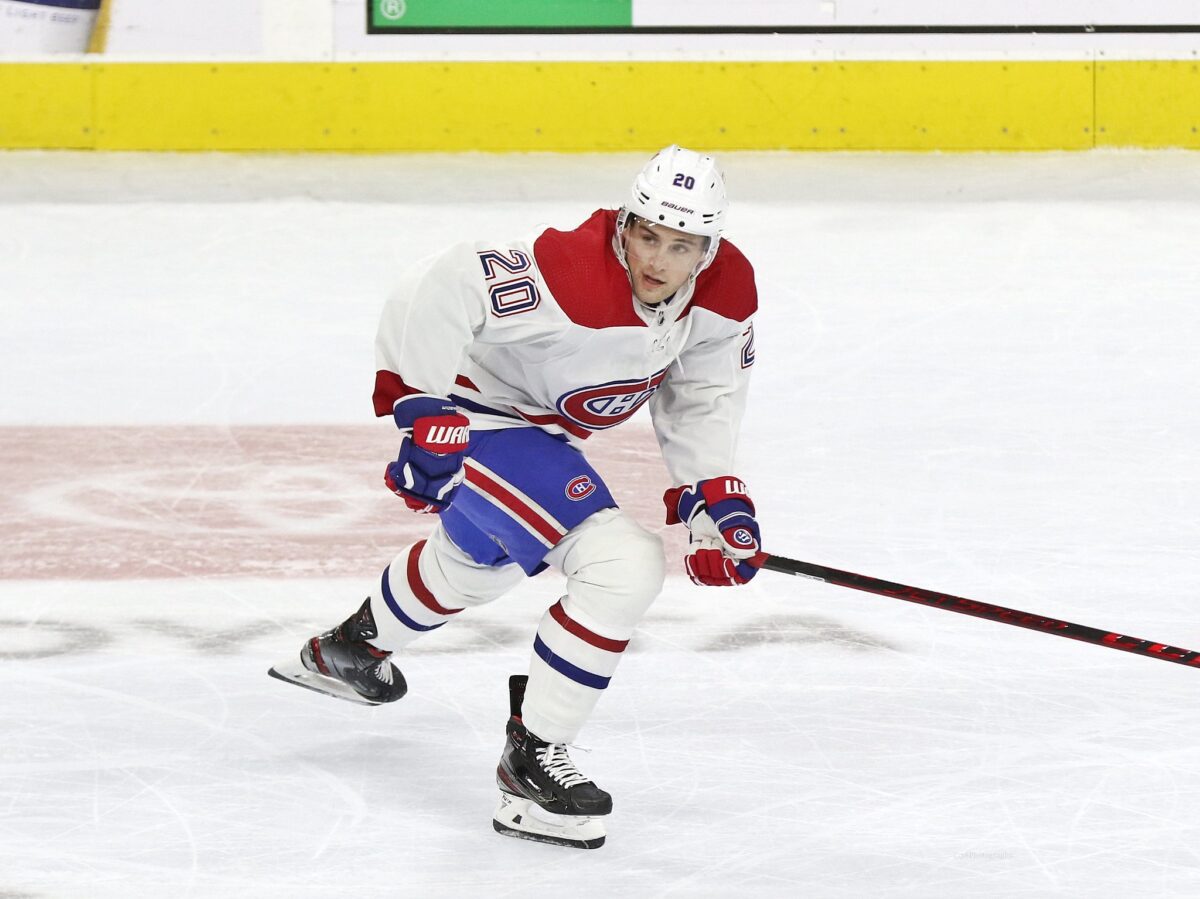One good thing about finishing in last place, following an injury-riddled 2021-22 season for the Montreal Canadiens? There’s only one way to go but up, and that goes for just about every single Habs player too.
That’s even true of forward Nick Suzuki, who bucked the trend as the only Canadien to play in all 82 games. Despite the handicaps he faced, he still had a pretty good season with a career-high 61 points in fact. However, rest assured, his star has likely far higher to shoot before reaching its peak.
Also of note, many Canadiens who struggled under ex-head coach Dominique Ducharme found new life under his replacement, Martin St. Louis. For example, the just-traded Jeff Petry scored a mere solitary goal and five assists in 38 games before the coaching change. He ended with 27 points in 68 games (so 21 in his last 30) to help facilitate an offseason trade to the Pittsburgh Penguins.

So, there are some Canadiens who could realistically see some regression to the mean in 2022-23. Who are the likeliest candidates? Here are the top three:
3. Mike Matheson
Defenseman Mike Matheson was the key piece coming back to the Canadiens in the Petry trade. After a season in which Matheson scored a career-high 11 goals and 31 points with the Penguins, he takes the No. 3 spot. While the Canadiens are poised to have a fairly deep forward group, Habs fans simply shouldn’t expect similar production to the 3.28 goals per game the Pens scored in 2021-22.
Neither should Matheson, who admittedly is projected to jump into a role as one of the top Canadiens defensemen, after playing just the fourth-most amount among Pens defensemen last season (18:48; which, for some context, would have been good for seventh on the Habs). However, Petry’s obviously gone. So are Ben Chiarot and Alexander Romanov on Matheson’s left side.

As a result, Matheson will be given opportunities, probably even on the power play, on which he played just 0:43 per game last season. The flip side is just two of his 31 points came on the man advantage, making him a legitimate threat at even strength. So, all things taken into account, there’s a good chance things even out to some degree, but not to the point Matheson avoided making this list.
2. Chris Wideman
Raise your hand if you saw defenseman Chris Wideman co-leading all Canadiens defensemen in scoring last season. Well, he did, proving the doubters expecting him to vie for little more than a seventh-defenseman role wrong to some extent, as he made his bid to return to North American hockey after a season in the Kontinental Hockey League.
Related: Canadiens’ 7th Defenseman Comes Down to Niku and Wideman
Hell, Wideman hadn’t even played in the NHL since 2018-19, also playing all of 2019-20 in the American Hockey League (AHL). Nevertheless, in putting up 27 points, Wideman displayed some of the puck-moving, playmaking potential that resulted in him winning the Eddie Shore Award as the AHL’s best defenseman a half-decade earlier.

Similar to with Matheson, there are few bodies above Wideman on the depth chart. So, there’s little preventing him from getting looks on the power play at the very least and replicating his performance on the man advantage, where he scored a third-ranked 12 points last season.
However, there is the undeniable fact Wideman had never scored more than 17 points in the NHL before. He is also theoretically on the verge of decline at 32. As a result, he’s a realistic candidate to see his production decline too, especially as he conceivably cedes some minutes to the up-and-coming Justin Barron the right side. That’s part of the rebuild process, though.
1. Rem Pitlick
Waiver-wire-pick-up Rem Pitlick was one of the Canadiens’ biggest feel-good stories last season. He scored 26 points in 46 games with the Habs (37 in 66 altogether, taking his time with the Minnesota Wild into account), effectively avoiding Group VI free agency by figuratively forcing the Canadiens to play him in just about every game down the stretch (to reach the minimum-games requirement).
Of course, then the Canadiens failed to qualify him, because they were facing a cap crunch. Thankfully, this story has a happy ending, with Pitlick eventually re-signing as an unrestricted free agent, to a more affordable deal than he would gotten otherwise, to continue playing for the same team that drafted his brother, Rhett, in 2019.
It’s at least a happy ending for now, but there’s no denying Pitlick’s due to regress, even if only because he already has to some degree. At one point last season, he scored 29 points in 46 games, a 0.63 point-per-game pace. Over his time with the Canadiens though, he scored at one of 0.56, which isn’t a huge drop-off, but it is likely foreshadowing.

Leading the Canadiens with a seemingly unsustainable 17.3% shooting percentage, Pitlick just can’t be expected to put up points at the same rate he did last season, in part through little fault of his own. There’s just too much depth on the wings at this point, and, unless the Canadiens end up as injured as they did last season, Pitlick won’t be getting the same amount of ice (17:17, which was ranked fourth among forwards).
All that to say, Pitlick should still add scoring punch to the bottom of the lineup, making the Canadiens more than a one-line team (or the three-line AHL team they seemed for large stretches of last season). Just because Pitlick and a few others are poised to regress, overall the Habs are looking at significant improvement across the board. After all, someone has got to play in the bottom six, and, if it’s a 15-goal scorer like Pitlick, it only means good things for the rest of the lineup, not to mention the organization as a whole and its fans.